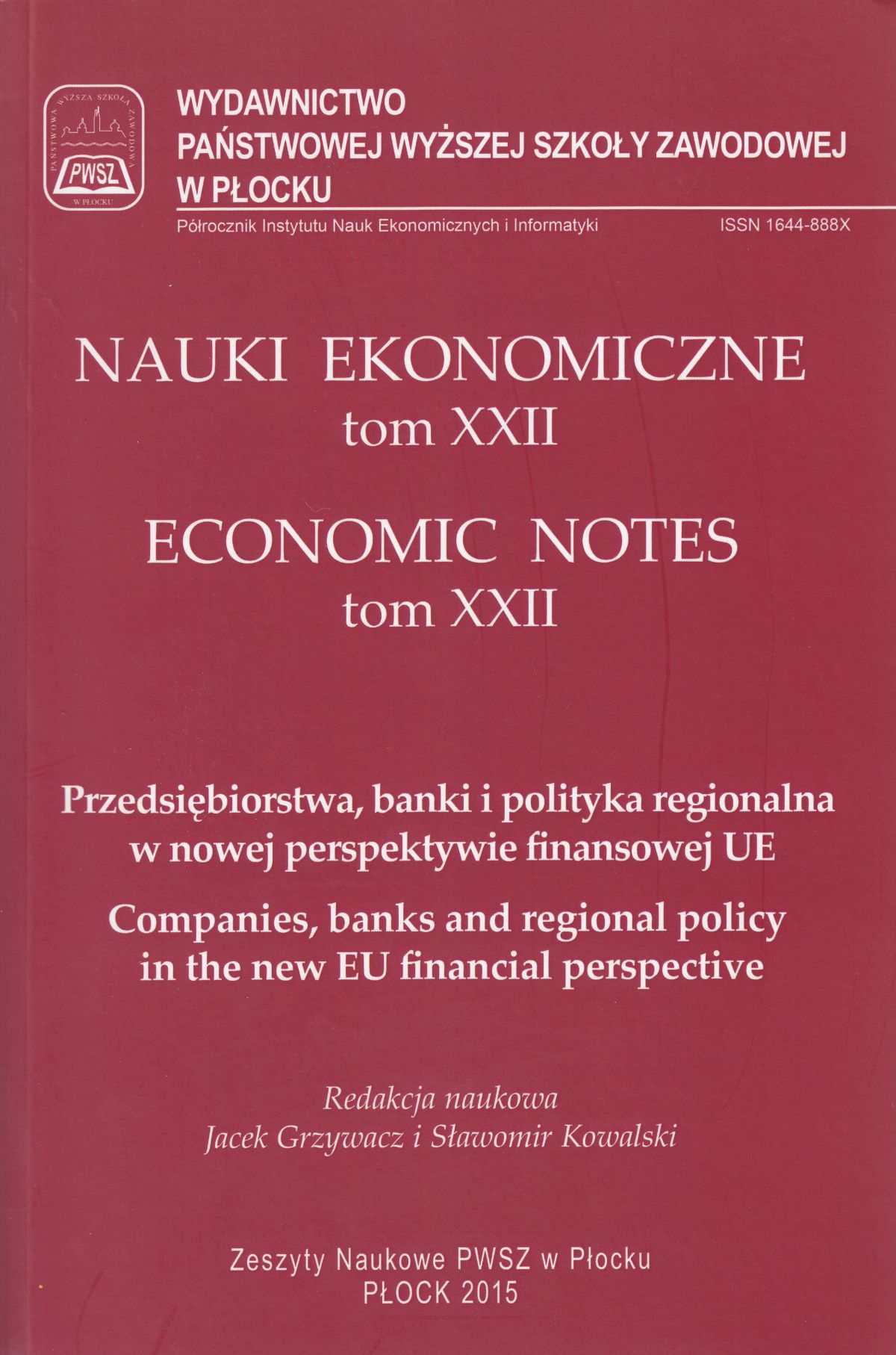KREDYT W PRZEDSIĘBIORSTWIE
Abstrakt
Summary
The aim of the study is to identify the role of the bank loan in the the company and the factors
which determine the company to stop making efforts to take a loan for the the investments
and development of the company. Bank loans are definitely attractive source of capital for
companies. Foreign currency loans also carry the risk of currency, which requires a large active
risk management. The companies passivity in taking the loans has many causes, which make
up one of the factors limiting the development possibilities of the entire economy.
Key words: bank loan, the foreign currency loan, currency risk, companies passivity
Bibliografia
Bibliografia
Grzywacz J. Kapitał w przedsiębiorstwie i jego struktura, SGH, Warszawa, 2008.
Grzywacz J. A. Okońska Venture capital a potrzeby kapitałowe małych i srednich przedsiębiorstw,
SGH, Warszawa, 2005.
Grzywacz J., Ryzyko w kredycie walutowym SGH, Warszawa, http://www.e-finanse.com/artykuly/
pdf (data dostępu: marzec 2015).
NBP Sytuacja finansowa sektora przedsiębiorstw w III kw. 2014 r., nr 04/14 (grudzień 2014),
Warszawa, 2014 r.
Paździor A., Dostępność instrumentów finansowych wspierających przedsiębiorczość i innowacje.
Ekspertyza naukowa, Politechnika Lubelska (data dostępu: marzec 2015).
Puchalska K., Tymoczko I.D., Szerokie ujęcie ekspozycji polskich przedsiębiorstw niefinansowych
na ryzyko walutowe. Źródła i skala ekspozycji oraz metody zarządzania ryzykiem
walutowym, NBP, Materiały i Studia, Zeszyt nr 293, Warszawa, 2013.
Sawicka A., Tymoczko I.D., Dlaczego polskie przedsiębiorstwa nie korzystają z kredytu?,
Materiały i Studia, nr 310, Warszawa, 2014.
Śliwiński D., Istota i rodzaje ryzyka walutowego. http://waluty.com.pl/pdf/ryzyko.pdf, (data
dostępu: marzec 2015).
www.kil.lubelskie.pl
www.banki.elfin.pl
www.waluty.com.pl
www.nbp.pl
